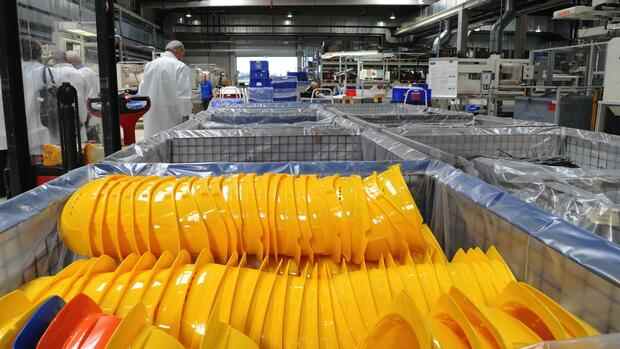Many companies hoard important primary products.
(Photo: obs)
All of us are probably familiar with the situation over the past few years: when you go shopping in the supermarket every week, you notice that products such as flour and toilet paper are once again in short supply. You still have plenty of both at home. But who knows if the shelves aren’t completely empty when you need new supplies? So, as a precaution, pack a little more to be prepared for a supply shortage.
What may seem like a sensible strategy for many consumers in this situation is becoming a problem on a larger scale for businesses. Concerned about an imminent shortage of materials, many companies are currently stocking up on more than they need – and stocking up on primary products such as plastics, metal parts or semiconductors.
The fear is understandable. Because since the outbreak of the pandemic two years ago, there have been repeated disruptions in the supply chains. Many companies had to stop their production temporarily.
Efficient distribution of goods is prevented
But in the end, the companies just compounded the problems plaguing the economy as a whole. Whoever hoards prevents the most efficient possible distribution of goods. The goods do not arrive where they are needed most urgently, but with the fastest buyer. What is disturbing for the consumer in the case of flour and toilet paper, but still bearable, can cause entire value chains to collapse in the highly networked industry.
Top jobs of the day
Find the best jobs now and
be notified by email.
Instead of hoarding, companies should plan early and inform their suppliers as precisely as possible about their long-term needs. Excessive misallocations and thus price increases can only be avoided through in-depth communication across the individual production stages.
Ultimately, this benefits everyone – and not just those who have particularly large warehouses.
More: Possible gas supply stop: How the industry is preparing for the worst case.
